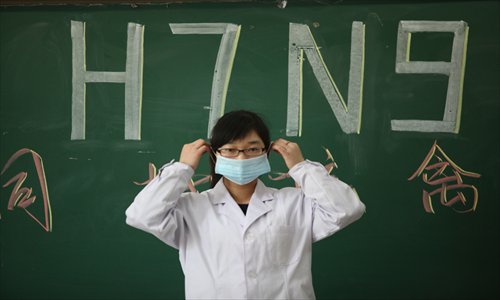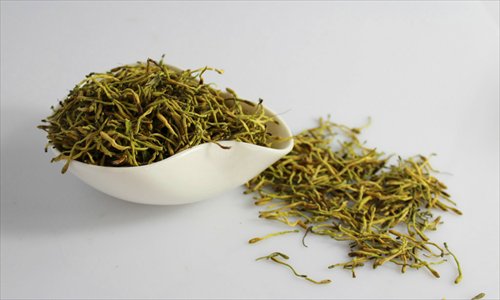Grave health matters
Editor's note
The ancient Chinese created an agricultural solar system - still in use today - that is based upon their observation of crops, climate, astrology, and the study of animal and plant life cycles. The system guided farmers as to when to sow seeds and when to harvest them, and this system has now been in place for more than 2,000 years.
Today, with advances in science and technology, agriculture depends less on this ancient wisdom. But this seasonal calendar still operates as a reference guide for gourmands to seek out the best times for seasonal delicacies and for health experts to plan nutritious diets.
In a single year, the system features 24 "solar terms," each lasting one day and occurring every two weeks. Each has its own name and characteristics. The Global Times is presenting a weekly series examining which foods and delicacies are best enjoyed during these periods, as well as tips on preserving general health.

Known as Tomb-sweeping Day, Qingming Festival usually arrives with drizzle and damp weather to match people's moods at this somber time. Literally meaning "clean and clear" in Chinese, qingming usually falls around April 5, or the 15th day after the spring equinox. We explore the ancient traditions around ancestor veneration, as well as offering tips on how to stay healthy - especially at a time when the H7N9 bird flu virus is sweeping through Southeast China.

Tomb sweepers
For centuries it has been a tradition for Chinese to go to graveyards to mourn and pay respects to their deceased family members. "It drizzles endlessly during the rainy season in spring; travelers along the road look gloomy and miserable." This is how one famous poet Du Mu (803-52) from the Tang Dynasty (618-907) described typical qingming weather and the temper of people during these days.
At qingming people bring wine, fruits, and the traditional snack qingtuan to the grave as offerings, while also burning paper money in honor of their ancestors. These actions are in the hope that the deceased have enough food to eat and enough money to spend in the underworld.
Qingming is also dubbed the Cold Food Festival (Hanshi Jie), meaning people are not supposed to cook or eat hot food on that day. It is believed that cold food can still be bad for general health at this time of year, and people are encouraged to do warming exercise during this period, such as flying kites or going on an outing.
Spring outings can strengthen people's lower limbs and help to improve the blood circulation. The key to spring walking is to move gently. This is to protect the ligaments and muscles that may not have been stretched much during the long winter.

Climate changes
The climate is usually humid during qingming and the roller coaster-like temperatures can easily lead to colds and respiratory conditions. There's an old saying, "keep warm in spring and cool in autumn," which means it is better to wear more clothing in the spring to prevent colds, and not to rush to wear too many clothes in autumn when the temperatures start to slowly fall.
And with humid weather, the elderly and people with high blood pressure can easily fall ill. And the stress of grieving for relatives can also worsen people's conditions, especially after a visit to the graves of beloved ones. So to lessen the likelihood of serious health problems, the frail and elderly are advised to try to control their emotions, and to avoid succumbing to overwhelming grief.
Another ancient breath adjustment method is called "tortoise breathing," which is good for calming the whole body. This involves using a combination of the upper chest and belly when breathing which benefits the heart and cerebral vessels.
You inhale as much air as possible by extending the chest and then using the belly to transmit the air from the chest down into the abdomen. The air is then expelled through the nose.
Watch the bird flu
As the shadow of H7N9 bird flu virus hangs over China, the most popular topic at the moment is how to preventing falling victim to it.
And in the wake of this new and unfamiliar virus, many residents blindly believe that isatis root beverage, or banlangen in Chinese, is capable of preventing and curing the virus.
However, The State Administration of Traditional Chinese Medicine (TCM) has refuted this notion, saying that isatis root may be effective in preventing colds, but it isn't suitable for everyone.
The administration has released a recommended TCM prescription that includes mulberry leaf, honeysuckle and baical skullcap root and which they say is effective for H7N9 patients, who have symptoms of fever, cough or rapid breathing.
The World Health Organization suggests people maintain good personal hygiene: proper and frequent hand washing; eating properly cooked meat, cooked above 70 C; and not eating sick animals. It is also important to keep children away from dead animals.
At the time of going to press, the total number of H7N9 infections has reached 21. Shanghai alone has seen 11 confirmed cases, with five fatalities by the end of April 8. The other six patients are currently quarantined and undergoing treatment.